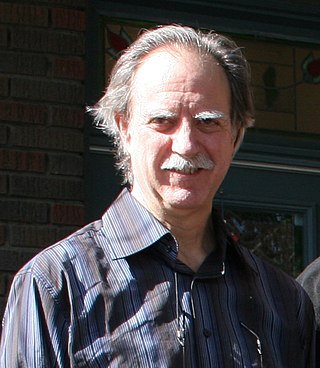Related Research Articles
The Academy Award for Best Animated Short Film is an award given by the Academy of Motion Picture Arts and Sciences (AMPAS) as part of the annual Academy Awards, or Oscars, since the 5th Academy Awards, covering the year 1931–32, to the present.
Modern animation in the United States from the late 1980s to 2004 is frequently referred to as the renaissance age of American animation. During this period, many large American entertainment companies reformed and reinvigorated their animation departments, following the dark age, and the United States had an influence on global and worldwide animation.

The National Film Board of Canada is a Canadian public film and digital media producer and distributor. An agency of the Government of Canada, the NFB produces and distributes documentary films, animation, web documentaries, and alternative dramas. In total, the NFB has produced over 13,000 productions since its inception, which have won over 5,000 awards. The NFB reports to the Parliament of Canada through the Minister of Canadian Heritage. It has bilingual production programs and branches in English and French, including multicultural-related documentaries.
The term independent animation refers to animated shorts, web series, and feature films produced outside a major national animation industry.

William Gale Vinton was an American animator and filmmaker. Vinton was best known for his Claymation work, alongside creating iconic characters such as The California Raisins. He won an Oscar for his work alongside several Emmy Awards and Clio Awards for his studio's work.
The History of Canadian animation involves a considerable element of the realities of a country neighbouring the United States and both competitiveness and co-operation across the border.

Frédéric Back was a Canadian artist and film director of short animated films. During a long career with Radio-Canada, the French-language service of the Canadian Broadcasting Corporation, he was nominated for four Academy Awards, winning two, for his 1981 film Crac and the 1987 film The Man Who Planted Trees.
Ernest Pintoff was an American film and television director, screenwriter and film producer.
Paul Augustin Driessen is a Dutch film director, animator and writer.

The 50 Greatest Cartoons: As Selected by 1,000 Animation Professionals is a 1994 book by animation historian Jerry Beck, with a foreword written by Chuck Jones.
Richard Condie, is a Canadian animator, filmmaker, musician and voice actor. Condie is best known for his 1985 animated short The Big Snit at the National Film Board of Canada and has won six international awards for Getting Started in 1979. Condie lives and works in Winnipeg, Manitoba.

Normand Roger is a Canadian composer, sound editor and sound designer. He is particularly known for his work as a composer of soundtracks for animated films, having composed more than 200 such works since 1970. He has also worked on the creation of music for documentaries, feature films, television dramas, children's series, commercials, and new technologies with 3D and virtual reality. He is the composer of many original soundtracks for Frédéric Back, Paul Driessen, Michaël Dudok de Wit, Caroline Leaf and Aleksandr Petrov. Thirteen of his works have been nominated for Academy Awards, of which six have won. He also notably wrote the theme for the PBS's Mystery!. Roger lectures throughout the world on music and sound for animation.

Ferenc Rofusz is a Hungarian animator. He is known for the 1980 Academy Award-winning animated short The Fly.
The animated documentary is a moving image form that combines animation and documentary. This form should not be confused with documentaries about movie and TV animation history that feature excerpts.

World Festival of Animated Film Zagreb, best known as Animafest Zagreb, is a film festival entirely dedicated to animated film held annually in Zagreb, Croatia. Initiated by the International Animated Film Association (ASIFA), the event was established in 1972. Animafest is the second oldest animation festival in the World, after the Annecy International Animated Film Festival.
Spike and Mike's Festival of Animation is a presentation of award-winning animated short films, annually touring throughout theaters, film festivals or college campuses in the United States.

The Man Who Planted Trees is a 1987 Canadian short animated film directed by Frédéric Back. It is based on Jean Giono's 1953 short story The Man Who Planted Trees. This 30-minute film was distributed in two versions, French and English, narrated respectively by actors Philippe Noiret and Christopher Plummer, and produced by Radio-Canada.
The Tender Tale of Cinderella Penguin is a 1981 Canadian animated short film by Janet Perlman that comically adapts the tale of Cinderella with penguins. Produced by the National Film Board of Canada, it was nominated for an Academy Award for Best Animated Short Film at the 54th Academy Awards, losing to another animated short from Montreal, Frédéric Back's Crac. The Oscar nomination was the fourth in five years for executive producer Derek Lamb, also Perlman's husband. The film also received a Parents' Choice Award.
Animation historian Jerry Beck had posted on Cartoon Research lists of animated shorts from various studios considered for nomination of the Academy Award for Best Animated Short Film, beginning with 1948 and ending for the time being with 1986.
All Nothing is a Canadian animated short film, directed by Frédéric Back and released in 1978.